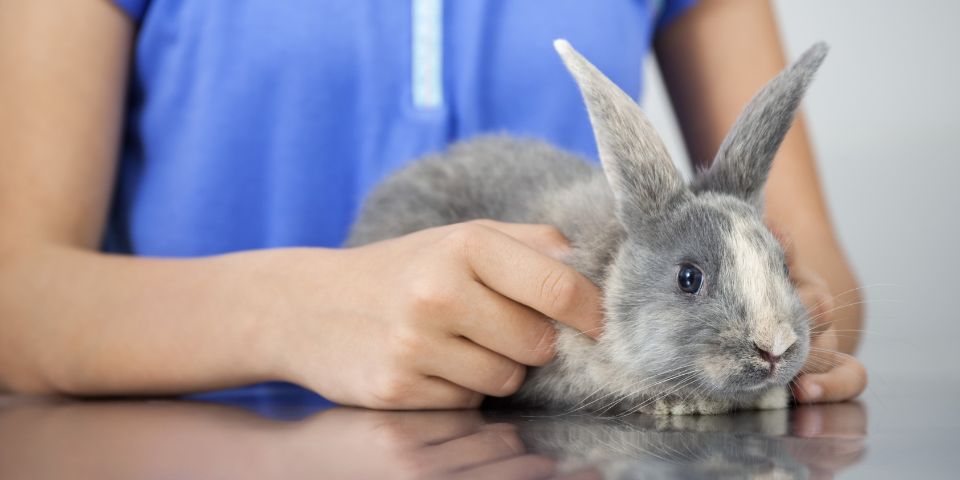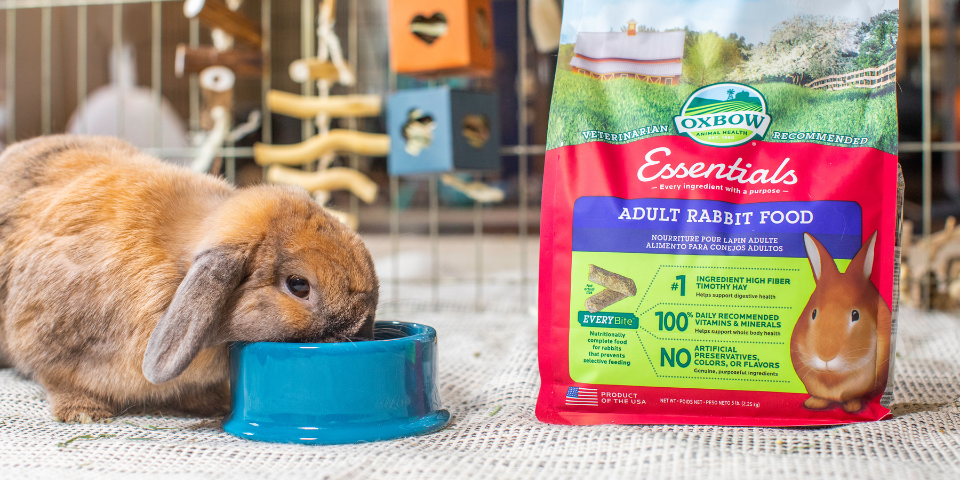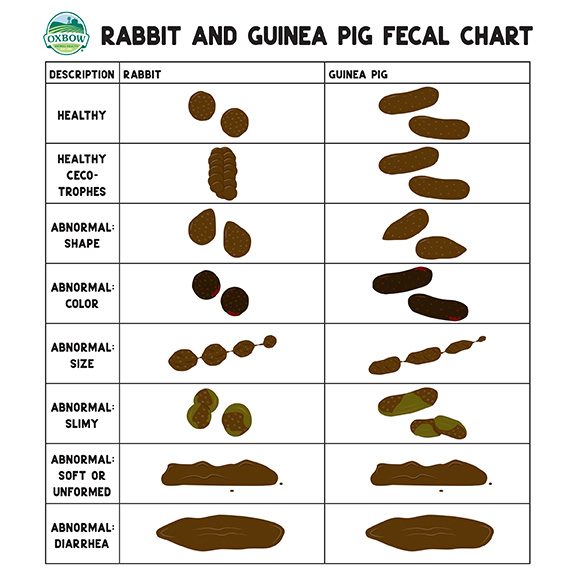Updated: May 5, 2023
Author: Dianne Cook, LVT
Rabbits make wonderful companions. They’re intelligent, social, curious, and oh-so-cute, but sometimes it’s difficult for us to interpret their unique language. Rabbits, by nature, are prey animals. In the wild, they spend a large portion of their day avoiding predators, and any sign of weakness or illness would make them an easy target.
Rabbits are hard-wired to mask any and all signs of illness or injury which often means they go undetected by even a diligent and observant owner until a bunny is critically ill. Below are signs of illness and/or injury that every owner should be aware of, and if noted, should lead to immediate communication with their favorite, rabbit-savvy veterinarian.
Signs of Illness and Injury in rabbits include:
- You notice changes to your rabbit’s appetite
- Your rabbit’s poop looks different
- You notice your rabbit behaving abnormally
- You notice changes in your rabbit’s gait or posture
- You notice your rabbit’s fur appears dull or is missing in places
- You notice your rabbit is drooling, has facial swelling, or is having difficulty eating
- You notice signs of upper respiratory issues with your rabbit
 You Notice Changes To Your Rabbit’s Appetite
You Notice Changes To Your Rabbit’s Appetite
If rabbits aren’t sleeping, they are nearly always grazing, foraging, or eating (with a few breaks for a binky or two). This constant food intake, particularly hay, ensures their specialized gastrointestinal tract keeps running smoothly.
If you notice your bunny isn’t eating their usual volume of hay, or they are leaving their pellets and fresh veggies untouched, it is essential that you communicate with your veterinarian as soon as possible.
Gastrointestinal stasis is a potentially fatal health concern that can develop quickly if your little one has experienced excessive or sudden environmental stressors, is eating a poor-quality diet, or isn’t ingesting the volume of fiber necessary to keep their digestive tract running.
Your Rabbit’s Poop Looks Different
If there’s one thing rabbits do better than eating, it’s pooping. The unique way in which rabbits digest their food results in two normal types of feces.
Normal Rabbit Poop #1: Fecal Pellets
The first type of normal rabbit poop is the typical small, round ball. This type of feces, frequently called “fecal pellets”, should be relatively uniform in size and shape.
Normal Rabbit Poop #2: Cecotropes
The second type is a glossy, grape-like cluster called cecotropes (pictured). Cecotropes are comprised of nutrients (Volatile Fatty Acids, vitamins, minerals, amino acids, etc) that were not absorbed the first time through the system. In lieu of letting those nutrients go to waste, your sweet bun re-ingests cecotropes, and all of these important nutrients, directly from their anus.
Though not the most glamorous aspect of bunny parenthood, it’s important to keep a close eye on your bunny’s feces.
Abnormal Rabbit Poop: What To Watch For
Be on the lookout for small or abnormally shaped fecal pellets, uneaten or excessively-produced cecotropes, soft stools/diarrhea, or lack of fecal output.

You Notice Your Rabbit Behaving Abnormally
A healthy rabbit is an active rabbit. Rabbits should be allowed ample time outside of their habitats daily to run, jump, and explore in a safe, bunny-proof environment. Even rabbits who aren’t able to leave their enclosures should be alert and active. Though it is completely normal for your bunny’s activity level to decrease with age, changes should be gradual.
If your rabbit is suddenly or progressively less eager to move around, more withdrawn, or becoming aggressive, he may be trying to tell you something is wrong. Abnormal vocalization or any changes in normal patterns of behavior should also be noted.
Rabbits express a wide array of vocalizations but aggressive growling (low, guttural sound) and teeth grinding tend to be worrisome. Teeth grinding is similar to the soft, content “purring” sound, but is a much louder, sharper sound and is usually a sign of pain.
You Notice Changes in Your Rabbit’s Gait or Posture
Rabbits are agile, sure-footed creatures. Abnormalities or changes in their gait, agility, or general posture should raise a red flag. Stumbling or staggering may be coupled with head tilt (or “wry neck”) where a rabbit will hold their head cocked to one side. The tilt may be continuous, or it may come and go, and can be the result of anything from an ear concern to a neurologic issue.
Another sign of illness to watch for in rabbits is a change in posture. When your bunny is experiencing pain, their naturally hunched appearance becomes much more pronounced. If your little friend is suffering from GI upset, for instance, you may notice them trying to press their belly into the ground or repeatedly stretching as they attempt to move to relieve the pain.
You Notice Your Rabbit’s Fur Appears Dull or is Missing in Places
Rabbits rarely have a bad “hare” day. If you notice your little loved one’s coat is losing its normal luster, if they are balding or shedding excessively, or if they suddenly seem to spend excessive time grooming or scratching, it could be a sign of underlying health concerns.
People often associate dull coats or hair loss with external parasites, like mites and lice. While these parasites certainly can cause skin and coat abnormalities, there are several possible causes for your sweet friend to experience dull and/or thinning fur.
Hormonal imbalances are another potential source of coat abnormalities, as well as underlying digestive issues. Just like many animals, the skin is the largest organ in rabbits and can be the first indicator of clinical signs if your little one is dealing with a systemic health concern.

You Notice Your Rabbit is Drooling, Has Facial Swelling, or is Having Difficulty Eating
As an animal with constantly growing teeth, your bunny requires access to a constant supply of high-quality, grass hay to support proper wear of their 28 chompers.
Rabbits can develop two types of dental disease: congenital and acquired.
Congenital Dental Disease in Rabbits
Like humans, rabbits can suffer congenital abnormalities like overbites, underbites, or other malocclusions. In these instances, a rabbit’s teeth may not align properly and the teeth can become overgrown.
Acquired Dental Disease in Rabbits
The second, and more common, type of dental disease is referred to as acquired and most commonly occurs because of a lack of fiber in a rabbit’s diet. There are many potential clinical signs that can be associated with dental disease, but some of the most common include irregular chewing patterns, dropping food, weight loss, drooling, and facial swelling.

You Notice Signs of Upper Respiratory Issues with Your Rabbit
Rabbits are obligate nasal breathers and have especially delicate respiratory systems which can make them prone to upper respiratory infections.
Rabbit Snuffles – AKA Runny Nose, Watery Eyes, or Sneezing
“Snuffles” is a generalized term often bestowed upon rabbits suffering from a runny nose, watery eyes, and sneezing.
Though a runny nose may seem like a minor issue, it can quickly balloon into a bigger problem if not addressed quickly. Frequently, upper respiratory signs are the result of a bacterial infection and can be contagious to other rabbits.
Though subtle, rabbits do express signs of illness and injury, so as pet parents, it’s essential to keep a close eye on your rabbit every day. Rabbits are creatures of habit and routine, so familiarizing yourself with your rabbit’s “normal” is the best way of determining when something is “off.”
If your rabbit begins to exhibit any of the above-mentioned signs, or simply isn’t acting like themselves, it is always best to seek the advice of your favorite rabbit-savvy veterinarian. The mantra of “better safe than sorry” is especially true with rabbits.


